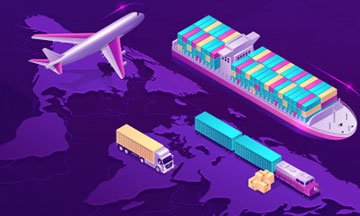Logistics Management and Operations Training Course
| Date | Format | Duration | Fees | |
|---|---|---|---|---|
| 29 Apr - 03 May, 2024 | Live Online | 5 Days | $2250 | Register |
| 03 Jun - 07 Jun, 2024 | Live Online | 5 Days | $2250 | Register |
| 29 Jul - 31 Jul, 2024 | Live Online | 3 Days | $1750 | Register |
| 09 Sep - 13 Sep, 2024 | Live Online | 5 Days | $2250 | Register |
| 10 Nov - 18 Nov, 2024 | Live Online | 7 Days | $3147 | Register |
| 15 Dec - 26 Dec, 2024 | Live Online | 10 Days | $4495 | Register |
| Date | Venue | Duration | Fees | |
|---|---|---|---|---|
| 20 May - 24 May, 2024 | Paris | 5 Days | $5695 | Register |
| 17 Jun - 21 Jun, 2024 | Singapore | 5 Days | $5695 | Register |
| 17 Jul - 19 Jul, 2024 | Windhoek | 3 Days | $4100 | Register |
| 23 Sep - 27 Sep, 2024 | Barcelona | 5 Days | $5695 | Register |
| 24 Nov - 05 Dec, 2024 | Jeddah | 10 Days | $9150 | Register |
| 09 Dec - 20 Dec, 2024 | Barcelona | 10 Days | $9850 | Register |
Course Overview
Logistics Management is an essential and integral component of supply chain management that strategizes, plans, implements, and controls the efficient, effective forward and reverse flow, storage of goods, facilities, and associated activities between the country of origin to the country of destination in order to meet customer requirements.
Logistics Management represents activities that involve the flow of materials and products through the organizations supply chain to the market. It supports specifically, business logistics to manage efficient, effective flow and storage of goods, services, and related information in a supply chain.
The key element of logistics includes logistics planning and strategy, customer service, procurement, transport, inventory, warehousing, and handling. This course would help in addressing challenges about logistics planning, selection of transport modes, vehicle routing, inventory policies, purchasing quantity and timing, and storage selection.
This Zoe training course will empower you with an in-depth comprehension and knowledge on Logistics and Operations management. This course will be an enabler to navigate through complex challenges which you encounter in your day-to-day operations and will help to upscale your current capabilities, and further help to equip you better by teaching how to use analytical and logical strategies for smooth functioning of logistics operations.
Course Objectives
The main objective of this ‘Logistics Management and Operations Certification Course’ is to empower participants with—
- Knowledge and understanding of logistics principles
- It will provide an overview of the key activities performed by the logistics function including distribution, transportation, global logistics and inventory control
- Know that logistics is more than an operational function that passively executes a plan, but as a planned and strategic function that creates value and competitive advantage
- Support in expanding and using data analysis skills by analysing and using supply chain data to make better business decisions
- Identify current challenges faced by supply chain professionals and provide a basis for navigating through these challenges
- Relate to the concepts and best practices of Logistics and Operations Management
- Understand requirements for Transportation and International Logistics
- Develop best practices and standards to achieve improved business performance by integrating and optimizing the total logistics and supply-chain process
Training Methodology
This interactive ‘Logistics Management and Operations Certification Course’ will comprise the following training methods:
- Presentation
- Assignments
- Case Studies & Functional Exercises
- Questionnaires
Zoe Talent Solutions follows the ‘Do-Review-Learn-Apply’ model.
Organisational Benefits
By professionals taking this ‘Logistics Management and Operations Certification Course’, organisations will derive the following benefits:
- Support in creating visibility into the organisation’s supply chain can further improve efficiency. It will help to use and process the available data and track movements of goods from a transportation management system for process optimisation and avoiding potential disruptions
- Help in instituting seamless logistics management which is vital in successfully delivering products at the right place at the right time. A well organised and structured logistics helps ensures fast and safe shipping, warehousing, and delivery of products to customers by choosing an experienced team of professionals
- Logistics is a critical element of a successful supply chain that assists in increasing the sales and profits of businesses that deal with the production, shipment, warehousing, and delivery of products. Furthermore, a reliable logistics service can boost and enhance business’ value and assist in maintaining a healthy and strong bottom line
- Help to sustain customer satisfaction by maintaining good logistics management which creates reliable strategies that help provide superior services to meet customer demand
Personal Benefits
Professionals enrolling for this ‘Logistics Management and Operations Certification Course’ will benefit in the following ways:
- In-depth knowledge and understanding of logistics management and operations
- It Will help to keep up with challenges and trends of the market impacting the logistics management environment
- Support to roll out proper system implementation for enhancing smooth operations
- Use learnings to operate a seamless logistic operation in the most cost-effective manner
- Help in identifying opportunities to develop strategies for improving effectiveness by using the learnings and tactics to build increased efficiencies, lower costs, higher production rates, better inventory control, proper utilization of warehouse space, increased customer and supplier satisfaction, and an improved customer experience
Who Should Attend?
Logistics Management and Operations Certification Course is ideal for Supply chain management professionals who need to build on their knowledge in order to meet their day-to-day challenges and work effectively for overall improvement of the Organizations profitability. This certification course will help prepare aspiring personnel with essential management skills, strategies and knowledge required for today’s ever-growing and complex Supply Chain Operations.
Typical participants include:
- Early or mid-career supply chain professionals who want to develop their knowledge
- Operations managers, Supply chain manager, Logistics Manager, Finance Managers, Contracts Manager, Procurement Manager
- Professionals wishing to further develop their role in their organizations
- Shipping company personnel wishing to upgrade their knowledge to support their customers
Course Outline
The course covers the following topics for understanding Logistics Management and Operations:
Module 1: Introduction to SCM and Logistics
- Understanding supply chain and logistics principles
- Supply chain concept and evolution
- Supply Chain and Logistics Definition
- Integration of Supply chain/ logistics
- Supply Chain and logistics – Linkage
- Supply Chain and Logistics – Decisions
- Best practices and lessons learned in Supply Chain and Logistics
Module 2: Transportation and Distribution
- Distribution – channels and logistics
- Distribution centres and site selection
- Understanding Transportation infrastructure
- Cargo movement – sea, air, and roadways
- Freight operations and management
- Cost Factors influencing freight
- Third-party logistics
Module 3: Logistics Documentation and EXIM Procedures
- International sourcing and trade drivers
- Documentation – Importance in logistics
- Overview on Incoterms
- HS Code and its Strategic importance
- Different types of transportation documents used in air, road, and sea transports
- Understanding Letter of credit
Module 4: Role of Logistics in Supply Chain
- Functions and goals of logistics
- Logistics and its impact on business processes
- Reverse logistics
- Value and Demand chain
- Value creation and services through the supply chain
- Logistics and Supply Chain – Strategic importance in improving the profitability of businesses
Module 5: Operations Management
- Operational Strategy & Design
- Operational Planning and Control
- Lean Management
- Continuous process and quality management process
- Operational Assessment
Module 6: Transport Management
- Transport Management Objectives
- Modes and Types of Transportation
- Cost simulation associated with transport management
- Effective and Efficient transportation
- Transportation – Routes
Module 7: Logistics Trends and Practices
- Logistics Overview
- Tactical, strategic and operational elements of logistics
- Effective Management of port personnel based on skills and competency
- Sustainable Logistics
- Logistics Concept – 3rd Party Logistics/4th Party Logistics
Module 8: Performance Management in Logistics
- SCOR Framework
- Identifying and customising high level and low-level SCOR metrics
- Setting targets and initiating performance improvement
- Risk Management
Module 9: Warehousing Operations
- Warehouse Network designing and configuration
- Value-added services
- Sustainable Warehouse Best Practices
- Profiling Warehouse Activities











